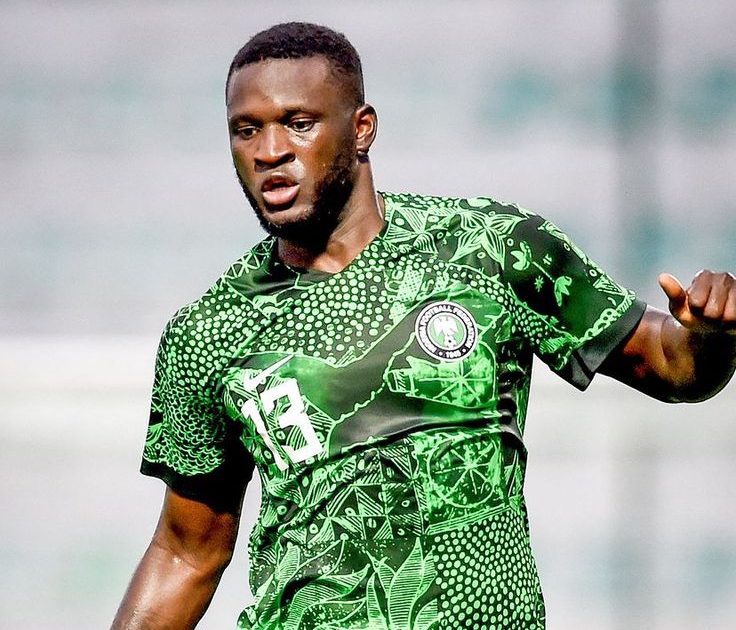Victor Boniface, the Bayer Leverkusen striker, recently ignited a firestorm of speculation within the Nigerian football community with a cryptic social media post hinting at retirement from the Super Eagles, Nigeria’s national team. Following a 1-1 draw against Russia in an international friendly, Boniface posted, then quickly deleted, a message expressing pride in representing his country and acknowledging both the positive and negative aspects of his international career, concluding with, “Thanks a lot. Thank you all. I don hang boot.” This phrase, often used to signify retirement, led many to believe Boniface was prematurely ending his time with the national team.
While Boniface has demonstrated impressive prowess at the club level, particularly during his time with Union Saint-Gilloise, his performances with the Super Eagles have yet to match this success. In the recent friendly against Russia, Boniface was granted a rare start by Head Coach Eric Chelle. However, his performance failed to ignite, registering only one shot on target and completing a mere eight passes before being substituted for Tolu Arokodare, the eventual goal scorer, in the 61st minute. This underwhelming display further fueled the speculation surrounding his supposed retirement announcement.
Amidst the swirling rumors and criticisms, former Super Eagles and Anderlecht defender Mobi Oparaku stepped forward to defend Boniface, emphasizing the player’s commitment and effort on the pitch. Oparaku acknowledged the long and grueling season, suggesting that many players are experiencing mental fatigue and are eager for a well-deserved break. He argued that Boniface’s struggles with the national team do not diminish his talent or dedication, highlighting the striker’s persistent effort despite not yet achieving his full potential in the green and white jersey.
Oparaku’s defense of Boniface raises an important point about the challenges faced by players transitioning between club and international football. While Boniface has flourished in the structured environment of his club teams, the different tactical approaches, playing styles, and personnel dynamics of the national team can present significant hurdles. The pressure to perform on the international stage, coupled with the weight of national expectations, can also impact a player’s performance. Furthermore, the physical and mental demands of a long season, often involving travel across continents and participation in multiple competitions, can lead to fatigue and burnout, further affecting on-field performance.
The incident also underscores the potential pitfalls of social media in the modern sporting landscape. Boniface’s hastily posted and deleted message, whether intended as a genuine announcement or a moment of frustration, created unnecessary confusion and sparked intense speculation. The rapid dissemination of information on social media platforms can amplify both positive and negative narratives, often without the necessary context or nuance. This incident serves as a reminder of the importance of considered communication and the potential consequences of impulsive online pronouncements, particularly for high-profile athletes operating under intense public scrutiny.
Ultimately, Boniface’s future with the Super Eagles remains uncertain. Whether his cryptic social media post represents a definitive decision to retire or simply a moment of frustration remains to be seen. However, Mobi Oparaku’s defense highlights the importance of considering the various factors that can influence a player’s performance and the need for patience and understanding as players navigate the complexities of international football. The challenges of adapting to different playing styles, managing the pressure of national expectations, and coping with the physical and mental demands of a demanding schedule can impact even the most talented athletes. The incident also serves as a cautionary tale about the power and potential pitfalls of social media in the contemporary sporting world.


